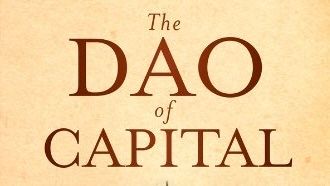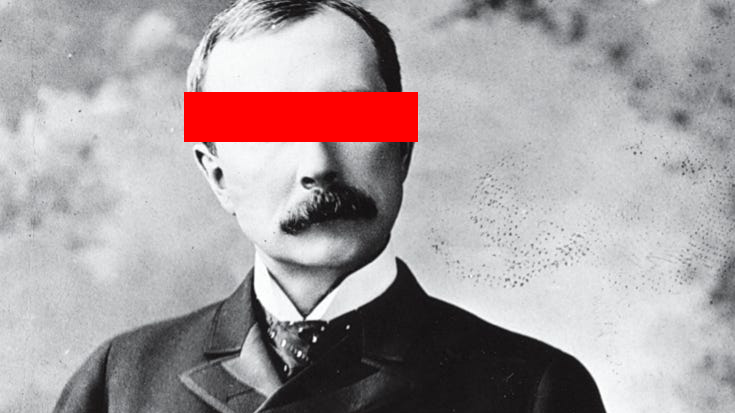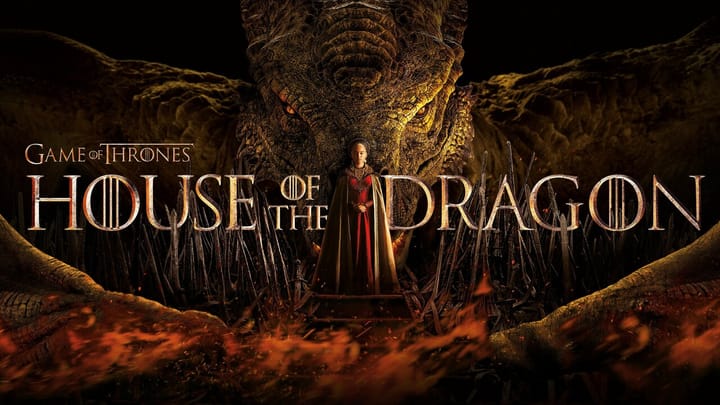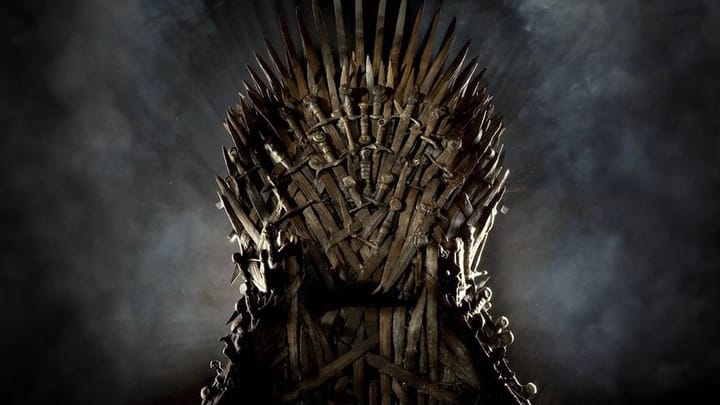The Dao of Capital by Mark Spitznagel Summary

Key Takeaways
- Be inconspicuous. Make it appear like you’re losing as you set yourself up to win in the long run.
- Economics in One Lesson by Henry Hazlitt is essential reading.
- Take the long way rather than the false shortcut.
- Sacrificing now to benefit later is often the only way forward.
- Karl Marx’s Das Kapital argues that the labor of the workers constitutes all the value a company creates (which is obviously false). This would mean that entrepreneurs are exploiting all of their workers and that the workers should own the value of the business in full. This is obviously false because the entrepreneur develops the product, does R&D, manages, finds suppliers, and takes on the risk of the business failing. The workers wouldn’t know how to manage, produce, find suppliers, find customers, or take on the risk of the business failing without the leadership. In a market where employees can leave their job and find another, their labor is paid at the wage that it is worth.
- Develop a strong base of knowledge before you start your career. The tree takes years early in its life to lay roots to better prepare itself for growth later on.
- The author says there is no need for minimum wages: businesses are already incentivized to give workers high wages to get higher quality workers.
- Not all sacrifices lead to benefits in the future. You have to predict what sacrifices will lead to the best benefits in the future.
- A good sacrifice is buying investment assets (stocks, crypto).
- Do not sacrifice for leisure time or liabilities. This is what most people do. They work a job to buy liabilities and have leisure time.
- A big reason why people don't sacrifice now for a better tomorrow is that they either do not know how to get a worthwhile reward. Ex) People who have not studied financial assets and developed conviction would never invest in them (at least not for the long term) and therefore will forgo the future capital gains. Knowledge and self-trust (trust that you have done the due diligence) are essential to taking action and reaping the future rewards.
- You must account for your enjoyment of different topics to change over time. When you were 16, video games may have been enjoyable. But at 30, you'll get no enjoyment from video games. So a decision made at 16 to become a professional video game player would be a poor choice because your older self would not enjoy it.
- The 1630s tulip bubble happened because the Holland government allowed citizens to coin their own silver and gold. This led to an influx of money and inflation—even though they had no central bank. This caused people to move into another “asset”—Tulips.
- Mark says to stay out of the markets for long periods of time when they’re distorted (artificially inflated). When interest rates approach zero, people will pile into the stock market (because it is the *only* place to get a return on your money and it will likely go up as money enters).
- Ideally, you want to wait for the MS index to go below 1, but that only happens once every few decades.
- Mark argues that the 2008 financial crisis and other markets crashes were not black swans—you could see them coming if you looked in the right place. If you were monitoring real estate you could see that there was a big problem with variable interest rates and the packaging of debt.
- Mark says that when the stock market is high, people expect a black swan and change their portfolios to prepare for the crash. It is this change that ultimately leads to a black swan that nobody saw coming that wipes these people out.
- We must wait for a competitive edge in the market: When we know a lot about a company and it suddenly drops for no reason.
- There are times when a great company will be priced like a bad company. Take advantage of this.
- Companies that reinvest capital often look like they are not growing revenue but they can be the best investments if their investments pay off.
- Most of Wall Street has extremely low time preference because they have to get returns quickly to keep their job. They cannot invest with a 5-year time frame. They must invest with quarters, months, or days in mind. This gives people with a long time horizon an advantage.
- The key to investing: find companies that have a high return on invested capital (ROIC) and are cheap from a market cap perspective.
Chapter 1
The Daoist Sage
This book takes principles from Daoism, literature, and history and applies them to investing.
Go left before you make a hard right.
Feign surrender before attacking.
Lose a battle to win a war.
Ignore current circumstances and be willing to be in an uncomfortable place.
In Robinson Cruso by Daniel Defoe, Robinson has to survive while stranded with limited resources. He takes the time to make a net and boat (tools that make him more productive). Making these took his time but they ended up benefiting him greatly. Take the time to 'make your net and boat.'
We must remember that all trades between two parties. To sell, there must be a buyer and vice versa.
Chapter 2
The Forest in the Pinecone
The roundabout way can be better than the direct route.
The author says that entrepreneurs should look for blue oceans like the conifer tree that has its seeds move away from other seeds that can grow faster. The seeds that grow faster would block the slower growing plants from the sun. This is a great analogy for having to be adaptive and move to where there is less competition. There are lessons to be learned from the conifer plant. Likely, there is something to be learned from cockroaches and other creatures that easily propagate and are hard to make extinct.
Chapter 3
Shi
Sun Tsu (Eastern war) defeats enemies through indirect means: manipulation, deception.
Clauschwitz’ On War (Napoleonic+ Western war) calls for taking direct punches.
Both of their books are required reading at West Point.
When you do not have an advantage, you do not fight.
Be inconspicuous. Make it appear like you’re losing as you set yourself up to win in the long run.
Clauschwitz was a brilliant Prussian general who defeated Napoleon. He likely has never read Sun Tsu because the art of war was only translated to French at the time and he hated French.
Chapter 4
The Seen and the Foreseen
Economics in One Lesson by Henry Hazlitt is essential reading. The economist Bastiat influenced Henry Hazlitt.
The caterpillar stores a portion of its food in its stomach so that it has food when it cocoons. It is taking action now to prepare for the future.
Chapter 5
Umweg
Take the long way rather than the false shortcut.
The book analyzes general strategic thinking throughout miles and millennia.
Daniel Defoe’s Robinson Crusoe was stranded on an island and had to figure out how to get resources. He first creates a spear out of a stick. This tool allows him to catch 5 fish a day—just enough to make it to the next day. But this took all his time and energy. If he wanted to become more efficient, he would have to forgo eating as much (so that he has time for other investments). He decided to only eat 3 fish a day and with his new time, he works on a boat. Crusoe ultimately catches more fish later by catch fewer fish now—and taking on the negative impacts of it: hunger. But you cannot just make uncalculated, random sacrifices. You have to be reasonably sure that your sacrifice will reward you (in excess) in the future.
- This example shows us that sacrificing now to benefit later is often the only way forward. Crusoe could not have just kept eating 5 fish a day—eventually he would starve, so he had to starve even more now, in order to survive and even have abundance in the future—by investing his time into making a small boat and fishing net.
Karl Marx’s Das Kapital argues that products are the sum of work hours. Meaning the labor of the workers constitutes all the value a company creates (which is obviously false). This would mean that entrepreneurs are exploiting all of their workers and that the workers should own the value of the business in full. This is obviously false because the entrepreneur develops the product, does R&D, manages, finds suppliers, and takes on the risk of the business failing. The workers wouldn’t know how to manage, produce, find suppliers, find customers, or take on the risk of the business failing without the leadership. In a market where employees can leave their job and find another, their labor is paid at the wage that it is worth.
You get more tree growth by cutting down a single 15 year old tree than you do by cutting three 5 year old trees. The tree takes years early in its life to lay roots to better prepare itself for growth later on.
- This is a good analogy for making a strong base of knowledge before you start.
The author says there is no need for minimum wages: businesses are already incentivized to give workers high wages to get higher quality workers and so the workers have enough money to buy the business’ product.
Chapter 6
Time Preference
Not all sacrifices lead to benefits in the future. You have to predict what benefits and sacrifices will be the best in the future.
This advice is different than Buffet—Buffet says that the best investing time frame is forever. Mark argues that we need to update and think about what other opportunities there will be and the sacrifices we have to make today (or in the future) to capitalize on those benefits.
You must sacrifice specifically for assets. Robinson Crusoe did not reduce his time spearing fish to lay in a hammock, he was investing in trying to catch more fish. Do not sacrifice for leisure time or liabilities (this is what most people do—work to buy liabilities and have leisure time).
You must sacrifice your 20s and 30s learning and taking action in order to be free in your 40s and 50s+.
Procrastination makes no sense. What is too onerous right now will not be easier in the future—do it now.
You have multiple temporal selves—don’t treat others unfairly. We are estranged from our future selves because we are unable to feel the emotions we will feel then.
Seize the day but also account for the future and the past.
We cannot fully understand time because it is an abstract concept. We also cannot fully understand the future. But trying to converge on the most probable outcomes (Bayesian thinking) is probably best.
A big reason why people don't sacrifice now for a better tomorrow is that they either do not know how to get a worthwhile reward. Ex) People who have not studied financial assets and developed conviction would never invest in them (at least not for the long term) and therefore will forgo the future capital gains. Knowledge and self-trust (trust that you have done the due diligence) are essential to taking action and reaping the future rewards.
You must account for your enjoyment of different topics to change over time. When you were 16, video games may have been enjoyable. But at 30, you'll get no enjoyment from video games. So a decision made at 16 to become a professional video game player would be a poor choice because your older self would not enjoy it.
Going in the woods can reduce ADD/ADHD and the negative attention effects of social media.
The three little pigs and the big bad wolf show how if you quickly make a house of sticks or straws, it is easily taken down. But if you take the time to build a house from bricks it can withstand the worst.
Chapter 8
Homeostasis
Fires reset the forests. We need to let small natural fires burn to reset the forest and limit large fires. Yellowstone had a huge fire because they put out all the small fires around it because they thought those fires were too risky and could start a fire. Theoretically, it seems they should have let the small fires burn.
He likens the previous example to running the banking system, Fed, and the economy. If you let small economic issues work themselves out, then you don’t get a massive economic collapse (fire) later. Cutting interest rates when the stock market takes a dive or bailing out banks “too big to fail” only makes things worse in the long run. You need to let these things fail and have them be replaced by better companies. The 2008 financial crisis should have been the "Yellowstone," the eye-opening realization to let the businesses fail.
The 1630s tulip bubble happened because the Holland government allowed citizens to coin their own silver and gold. This led to an influx of money and inflation—even though they had no central bank. This caused people to move into another “asset”—Tulips.
Ludwig von Mises is an Austrian economics legend who was an inspiration to Hayek. Mises and Keynes were in opposition. Keynes overshadowed him.
Chapter 9
Austrian Investing I: The Eagle and the Swam
Mark says to stay out of the markets for long periods of time when they’re distorted (artificially inflated). When interest rates approach zero, people will pile into the stock market (because it is the *only* place to get a return on your money and it will likely go up as money enters).
Ideally, you want to wait for the MS index to go below 1, but that only happens once every few decades.
To be a true black swan, you must have no idea it was a real threat.
Mark argues that the 2008 financial crisis and other markets crashes were not black swans—you could see them coming if you looked in the right place. Dave Lee and Michael Burry have said this about the 2008 financial crisis—if you were monitoring real estate you could see that there was a big problem with variable interest rates and the packaging of debt.
Mark says that when the stock market is high, people expect a black swan and change their portfolios to prepare for the crash. It is this change that ultimately leads to a black swan that nobody saw coming that wipes these people out.
Mark argues: If you understand Austrian economics, you would have seen the “blacks swans” like in 2008 coming. Most people were hurt by that crash because they don’t understand Austrian economics and they don’t apply it.
Study options.
We must wait for a competitive edge in the market: When we know a lot about a company and it suddenly drops for no reason.
Chapter 10
Austrian Investing II: Siegfried
You would think that all the businesses that have a high propensity to turn investment capital into revenue would have their ability to turn profit priced in, but according to Mark, they aren’t always.
There are times when a great company will be priced like a bad company—take advantage of this.
The most important thing for a business to do is reinvest capital. This may show up on 10-k’s as them not growing revenue—maybe even regressing. But that is their plan because they can get a better ROI by reinvesting the capital into their business. If you invest in this company today, they will be huge in the future because they forgo profit today for more profit in the future.
This is a rough version of the Faustmann Ratio metric that Mark Spitznagel presents in The Dao of Capital. The purpose is to conservatively calculate the price of the company (market cap) relative to net worth. Over a medium term horizon, the theory is that companies which have a high ROIC combined with a low Faustmann Ratio (color coded to give you a rough idea) should generally outperform.
- You want companies with a high ROIC (return on invested capital) and a low Faustmann ratio (net worth over current assets). The Faustmann ratio can show if a company is undervalued relative to its assets and a high ROIC means they can just keep investing and getting high returns.
Most of Wall Street has extremely low time preference because they have to get returns quickly to keep their job. They cannot invest with a 5-year time frame. They must invest with quarters, months, or days in mind. This gives people with a long time horizon an advantage.
The key to investing: find companies that have a high return on invested capital (ROIC) and are cheap from a market cap perspective.
The Robinson Crusoe analogy works for business: most investors see Crusoe (the business) and only see that he has gone from 5 fish (revenue) a day to 3 fish a day, not realizing that he is building a small boat and fishing net (tools to increase revenue). They do not invest in Crusoe because his revenue trajectory is downwards. But Crusoe will soon finish his net and boat and catch much more fish (have high revenue).



Comments ()